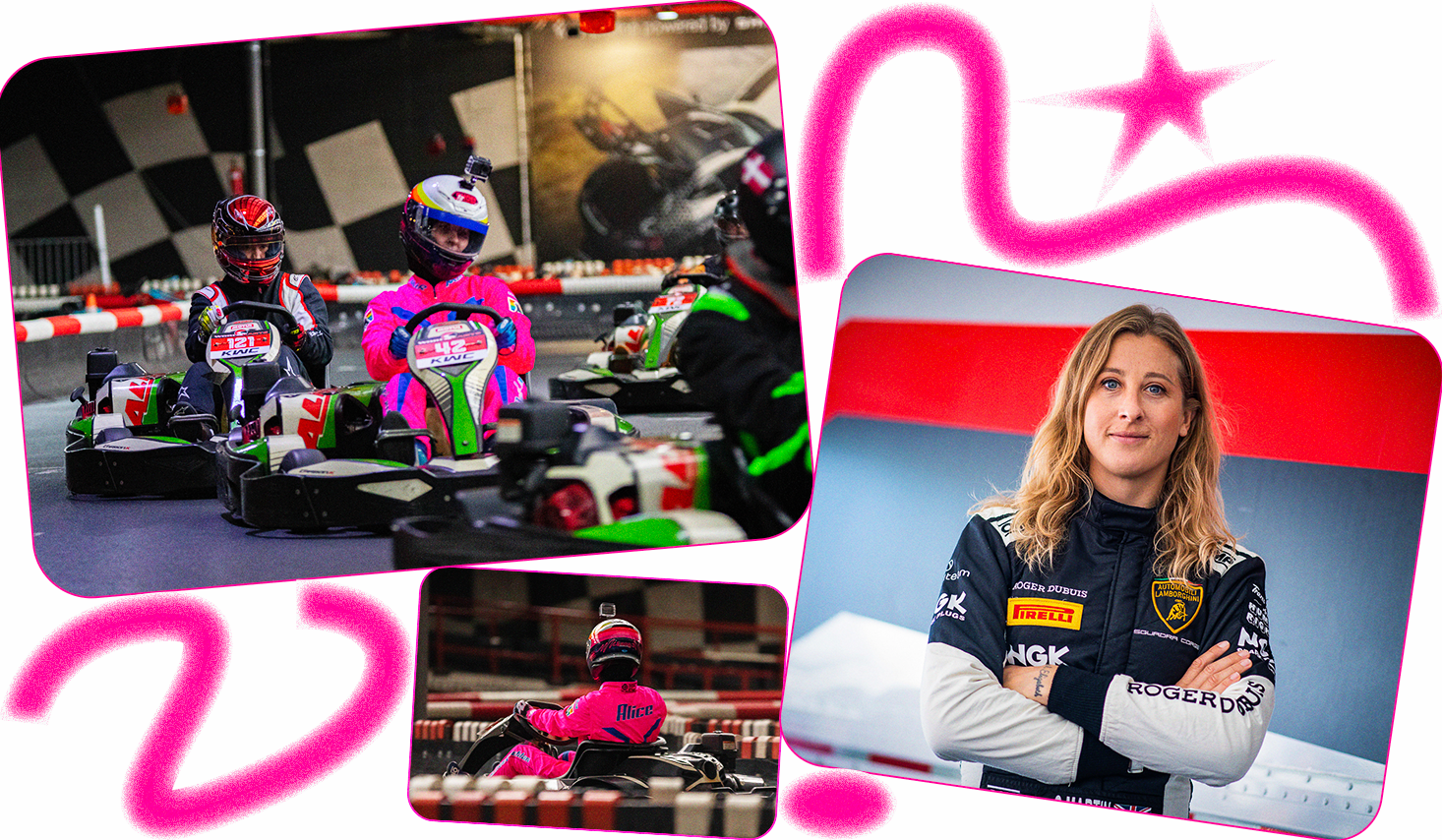
This is State of Play, a new column by Jamie Windust. Every month, Jamie will be jumping, running and diving head-first into the world of sport, movement and fitness.
Exploring queer sporting excellence at every level, they’ll also be reporting on the changes that need to be made in order to make the world of sport fully accessible to all within the community.
Motorsport in the UK is emerging as a potential leader for LGBTQIA+ participation in sport, standing by the trans community at a time when it’s more vital than ever.
Unlike other governing bodies such as World Aquatics or the Rugby Football Union who, in recent years have announced trans-exclusive rules, motorsport is welcoming trans people with open arms.
Specifically, during Trans Awareness Week in 2023 Motorsport UK launched a brand-new ‘Transgender Inclusion Policy’ committing Motorsport UK to the inclusion of non-binary, gender fluid, intersex and trans people including those on the track, as well as marshalls, officials and even committee members and partners of the governing body.
Commitments include allowing individuals the right to self-identification irrespective of whether or not they have a gender recognition certificate, as well as creating resources and tools to help clubs and championships to safely implement the new policy.
How has motorsport in the UK become more trans-inclusive?
However, this progress didn’t happen overnight. As LGBTQIA+ activist and motorsports racing driver Charlie Martin shares with GAY TIMES, there was a lack of awareness on trans experiences at the beginning of her transition. Despite this, the impact of public allyship has helped to transform the way she and other trans women are treated in motorsport.
“I think the gradual impact of visible LGBTQ+ people, advocates like Lewis Hamilton and Sebastian Vettel, and outreach projects within the sport from organisations like Racing Pride, in the UK at least, are starting to have a positive effect,” Martin explains.
Racing Pride works with ambassadors like Martin to engage them in conversation with mechanics, engineers and coaches in order to create a safe environment for queer and trans folk, no matter their role in the sport. The group, founded by motorsport journalist Christopher Sharp and driver Richard Morris, have explained that the network is “not about any one person or series, but what motorsport can do when we all pull together”.
Indeed, a truly affirming sporting culture isn’t just about having visible trans athletes – but also about cultivating an ecosystem where they can be supported at every level. This is embodied in the ethos of John Cowan, team principal of Norfolk-based Spirit Motorsport, who coached Deborah Stokes during her bid to become the first trans person to race in the British Touring Car Championships. “Deborah has been a joy to work with and we are positive about building diversity in the sport,” Cowan shares. “The car doesn’t care whether you are trans.”
From Martin’s point of view, trans inclusion is about creating a cohesive environment where a driver’s identity isn’t a barrier to their professional growth. “From 2015, I raced in France for three years and it was during this period that I really came into my own in terms of my performance,” she shares. “In no small part, I put this down to feeling comfortable both in myself and with all the people around me, who knew I was trans.”
Trans and behind the wheel
And it’s not just in the UK. New Zealand, too, is pushing for an inclusive motorsport culture. At least this is what 2022’s Indoor and Outdoor Rental Kart (IORK) Women’s Open Champion, Alice MacLachlan – who is from New Zealand – describes. “Nobody has batted an eyelid at my participation, and even people who I’ve known for most of my life have happily accepted me as Alice,” she says.
When discussing her experience within competitive karting, she explains that her inclusion was a given, rather than a point of contention “When I reached out to the organisers of the [Indoor Kart World Championship] to ask whether my entry could be in the women’s category, I expected, at the very least, to be questioned about how far through my transition I was,” she recalls. “They simply said, ‘Of course, that’s fine’. That was easily the most affirming experience I’ve had in motorsport – simply being quite casually accepted for who I say I am.”
In recent years Sport New Zealand announced that trans athletes will be able to participate in community sports as the gender they identify as, without the need for justification – a win for many trans athletes. However, the guidelines themselves do not apply to elite sport meaning there is still scope for ‘trans bans’ to come into place.
Despite this, MacLachlan’s positive experiences paint a positive picture of where motosport is at in terms of trans inclusion. Both on and off the track, the kart driver’s transness hasn’t been a problem. “Even in social contexts off the track, I have experienced none of the shunning I had been worried about. I’m just Alice now, and that seems fine by everyone else.”
What can other sports learn from Motorsport UK?
As trans athletes continue to be subject to discriminatory bans, motorsport’s proudly inclusive stance feels like a breath of fresh air.
Not only does it provide a shining example to the wider sport world, it allows drivers like Martin and MacLachlan the chance to devote more time to perfecting their craft in a welcoming atmosphere.
Motorsport UK’s clear, confident and unequivocal stance on LGBTQIA+ inclusion is the way forward – let’s hope that other organisations follow suit, and soon.